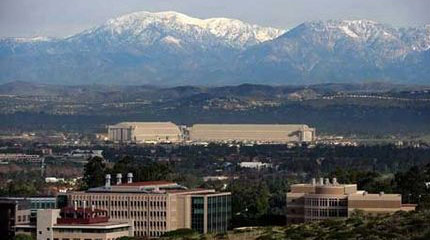 Allison Perlman, chair of the 2013 S-USIH conference committee, has announced the plenaries for the conference. Our thanks go out to her and the committee members, Christopher McKnight Nichols and Paul Rubinson for organizing these sessions.
Allison Perlman, chair of the 2013 S-USIH conference committee, has announced the plenaries for the conference. Our thanks go out to her and the committee members, Christopher McKnight Nichols and Paul Rubinson for organizing these sessions.
Plenary #1: Conservatism and Intellectual History: Pasts and Futures
George Nash’s seminal The Conservative Intellectual Movement in America established that the history of American conservatism was not only the history of political mobilization, social movement activism, or backlash politics, but of the articulation and circulation of conservative ideas. Mapping a multifaceted definition of conservatism–one that included anti-statism and libertarianism, social and intellectual traditionalism, and interventionist anti-communism–Nash’s work illustrated the complex and seemingly contradictory strands of post-war conservatism and charted the formation of conservative publications to cohere and circulate conservative ideas. The political and intellectual landscape has changed substantially since Nash’s first edition of this work was published in 1976, as has the scale, reach, and tone of conservative media outlets. In addition, a vast and rich historiography on American conservatism has emerged in the last 20 years, enriching our understanding of the rise of post-war right. This plenary will explore the intellectual history of conservatism in the US. It will consider how our understanding of conservative ideas, conservative intellectuals, and the conservative movement has shifted since the publication of Nash’s work.
Participants:
Angus Burgin (Johns Hopkins University)
Donald Critchlow (Arizona State University)
George Nash (Independent Scholar)
Kevin Schultz (University of Illinois at Chicago)
Leah Wright (Wesleyan University)
Moderator/chair: Lisa Szefel (Pacific University)
Plenary #2: The United States and the World: Intellectual Histories of American Foreign Relations
U.S. foreign policy frequently has intersected with–and has been informed by–ideas about race and ethnicity, religious faith and spirituality, human rights, social science, and the moral and economic underpinnings of capitalism. Recent work in the field of U.S. international relations has called attention to the significance of ideology, has explored previously un-or-under-examined groups and concepts embedded in wider communities of exchange, and has emphasized the reciprocity inherent in America’s interactions with other nations. Building on such insights, this plenary brings together scholars who are all deeply engaged in a wide variety of intellectual historical approaches to the U.S.’s role in and with the world. The U.S. and the World plenary will discuss new directions in the field and varied efforts to trace the transnational flow of action, thought, and politics in U.S. and world history in and across national boundaries. Ultimately, the goal of this plenary is to examine the reciprocal relationship between intellectual history and the history of U.S. foreign relations with an emphasis on how the history of ideas has played a determinative role in U.S. foreign policy and how U.S. engagement with other nations has influenced the history of ideas in the U.S.
Participants:
(Washington University)
Mary Dudziak (Emory University)
David Engerman (Brandeis University)
Erez Manela (Harvard University)
Moderators/chairs: Christopher McKnight Nichols (Oregon State University) and Paul Rubinson (Bridgewater State University)

0